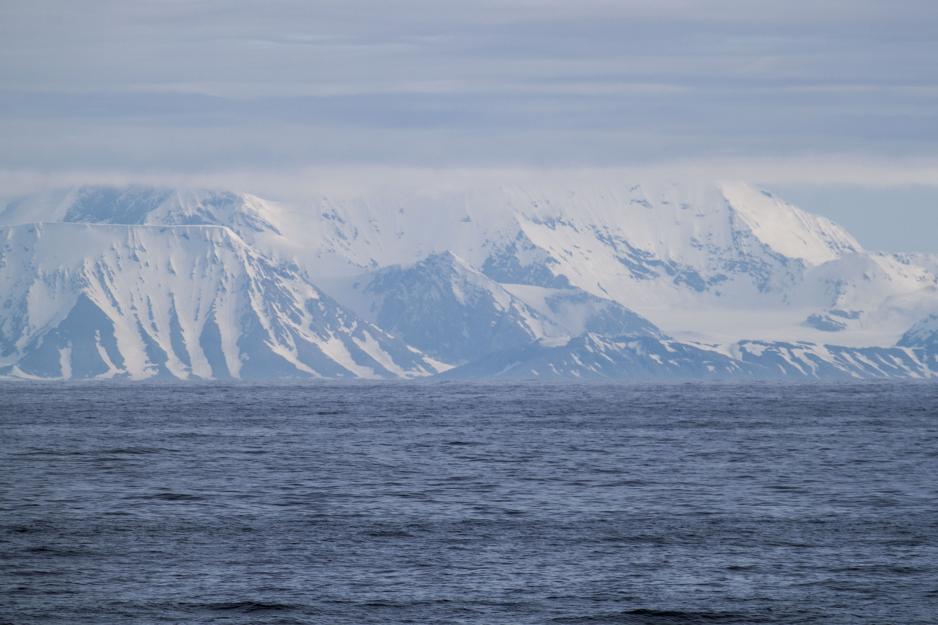Norway objects to the EU’s granting cod quotas in Svalbard waters
“Norway holds the exclusive right to regulate fisheries in the fisheries protection zone.”

A move by the European Union to grant quotas in the fisheries protection zone around Svalbard violates Norway’s sovereign rights, the Norwegian Ministry of Trade, Industry and Fisheries said in a press statement Friday.
“The EU has granted itself a quota of 28,341 tons of cod for 2021 in the fisheries protection zone,” says Fisheries and Seafood Minister Odd Emil Ingebrigtsen (Conservatives). “This violates Norway’s sovereign rights according to the UNCLOS and we look gravely upon the EU’s one-sided granting of quotas. I have therefore made it clear to the EU that any fisheries extending beyond the Norwegian-granted quotas will be considered illegal fisheries and asserted by the Coast Guard in the regular way.”
On Thursday, Ingebrigtsen met with the EU’s Commissioner for the Environment, the Sea and Fisheries Virginijus Sinkevicus.
“This is totally unacceptable behavior from the EU. Norway holds the sole right to regulate fisheries in the fisheries protection zone around Svalbard, and only Norway may grant the EU fish quotas in that area,” Ingebrigtsen says.
New quota following Brexit
Norway has allocated the EU a cod quota of 17,885 tons in the fisheries protection zone for 2021.
Great Britain’s historic fisheries were deducted when the EU quota was calculated, the ministry writes. As a consequence of Brexit, Britain’s historic fisheries may no longer constitute a foundation for EU’s quotas.
Senior Researcher Andreas Østhagen at the Fridtjof Nansen Institute tells High North News that this is another example of fisheries and fish quotas being a bone of contention between Norway and the EU.
“Norway and the EU are unable to fully agree on fisheries and fish quotas. We have seen that amongst others in the snow crab conflict between Norway and the EU.
Not necessarily coordinated policies
At the same time, Østhagen questions how well coordinated the EU’s recent quota granting is.
“We have seen previously, amongst others in the snow crab issue, that the EU has not had a coordinated policy. On the one hand, licenses for snow crab catching have been granted to EU vessels. On the other hand, the EU has not wanted to stir a debate about the Svalbard Treaty. The EU has followed Norwegian practice since 1977 and it would surprise me if they want to create an issue out of it now.”
“I assume this may be down to a glitch in their system, that they have not understood how things are connected. We have seen signs of that in many contexts. When it all boils down, it comes to there being just a few bureaucrats in the EU system creating the whole policy. If they are not quite updated, there may be a glitch here and there,” Østhagen said.
No quota trade-off in the Svalbard Zone
Negotiations are currently ongoing between Norway, the EU and Great Britain about fisheries agreements for 2021.
Fisheries Minister Ingebrigtsen has explained to the Norwegian magazine Fiskeribladet [the Fisheries Magazine] that the Svalbard zone is not closed for EU and Great Britain vessels even though the Norwegian zones in the North Sea and the Barents Sea are closed for vessels from the EU and Great Britain until an agreement has been reached.
“There are separate regulations here that are not part of quota trade-offs or in other ways affected if we do not have fisheries agreements for 2021”, the Minister says.
The Ministry of Trade, Industry and Fisheries says in its press statement that Norway ever since the creation of the zone has granted quotas to third countries that were traditionally fishing in the area, so that they may continue their historic fisheries. These quotas have been based on fisheries in the ten-year period prior to the creation of the zone.
The most important fishing countries in the Svalbard zone are Spain, Germany and the UK.